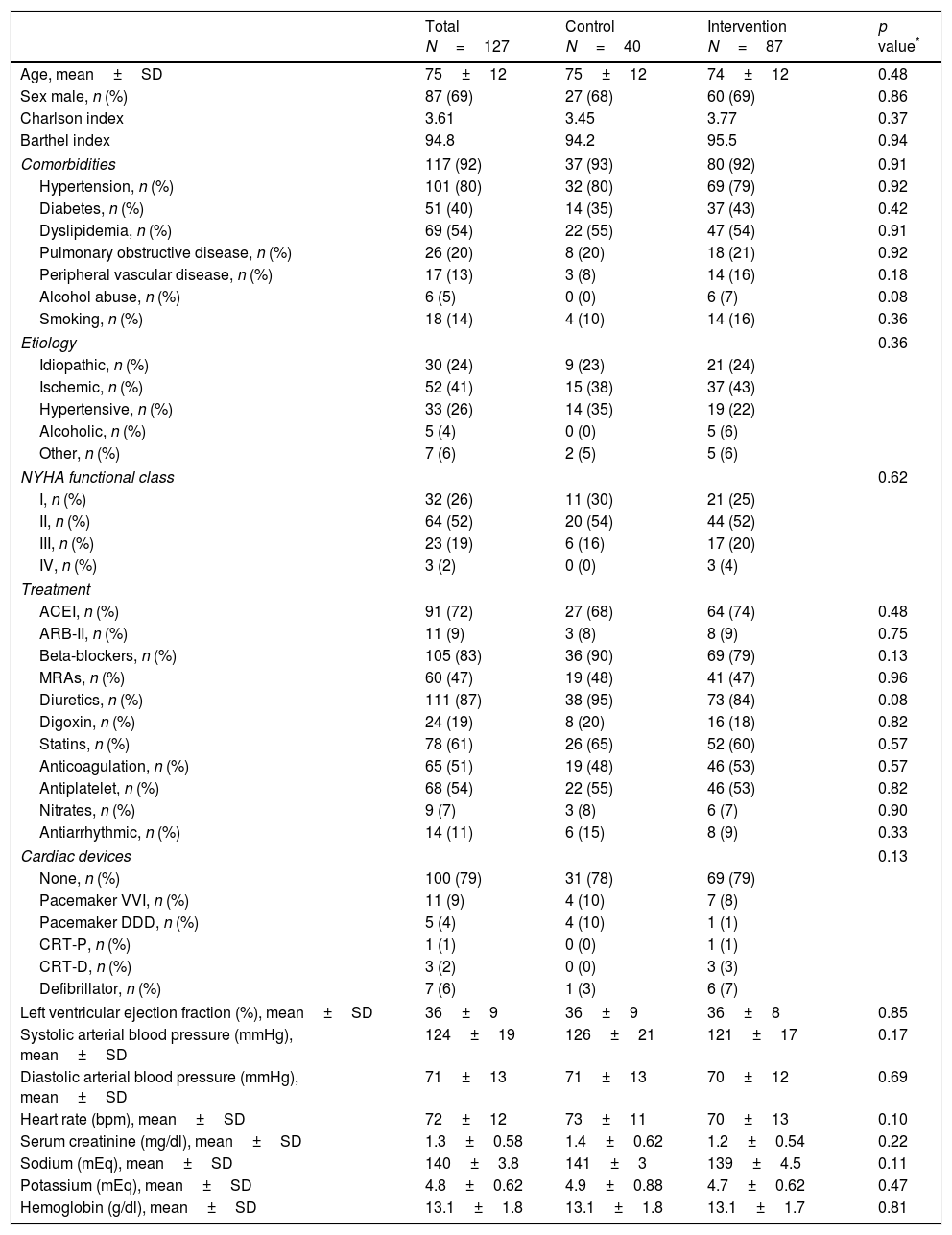Several trials have evaluated the effect of disease management programs in heart failure (HF) with diverse results. The aim of this study was to develop a simple nurse-led clinic intervention program for patients with HF and assess whether this intervention positively affects the prognosis of patients, their care costs and perceived quality of life (QoL).
MethodsBetween 2011 and 2013, 127 patients with reduced ejection fraction were prospectively randomly allocated (1:2) to standard care or intervention program. Primary composite endpoint was all-cause mortality and hospital readmissions. Secondary endpoints were all-cause mortality, all-cause hospital readmissions, readmissions for HF, time to first readmission and QoL improvements assessed by “Minnesota Living with Heart Failure Questionnaire” (MLHFQ). An intention-to-treat analysis was performed.
ResultsAfter a median follow-up of 2-years, no differences were found in the primary composite endpoint. Likewise, there were no differences between groups in the predefined secondary endpoints of mortality and readmissions from any cause. However, in the intervention group, readmissions for HF were significantly reduced (35% vs. 18%; p=0.04) and QoL significantly improved (MLHFQ±SD: 2.29±14 vs. 10.9±14.75; p=0.04).
ConclusionsIn patients with HF, the use of a nurse-led intervention program significantly improves perceived QoL and reduce HF hospital readmissions.
Se han publicado múltiples ensayos sobre programas de gestión de enfermedades en la insuficiencia cardiaca (IC) con resultados muy heterogéneos. El objetivo de este estudio fue desarrollar un sencillo programa de intervención clínica dirigido por enfermería en pacientes con IC y evaluar si dicha intervención afecta positivamente sobre el pronóstico de los pacientes, sus costes de atención y la calidad de vida percibida.
MétodosEntre 2011 y 2013, 127 pacientes con fracción de eyección reducida fueron aleatorizados (1:2) a manejo estándar o al programa de intervención. El objetivo primario compuesto fue mortalidad y reingresos hospitalarios por cualquier causa. Los criterios de valoración secundarios fueron mortalidad por cualquier causa, reingresos hospitalarios por cualquier causa, reingresos hospitalarios por IC, tiempo hasta el primer ingreso y mejoría de la calidad de vida evaluado por el Minnesota Living with Heart Failure Questionnaire (MLHFQ).
ResultadosTras un seguimiento medio de 2 años, no se encontraron diferencias en el criterio de valoración compuesto primario. Igualmente, no hubo diferencias en la mortalidad o los reingresos por cualquier causa. Sin embargo, en el grupo de intervención, los reingresos por IC se redujeron (35 vs. 18%; p=0,04) y la calidad de vida percibida mejoró de forma significativa (MLHFQ±DE: 2,29±14 vs. 10,9±14,75; p=0,04).
ConclusionesEn los pacientes con IC, el empleo de un programa de intervención dirigido por enfermería mejora significativamente la calidad de vida percibida y reduce los reingresos hospitalarios por IC.









